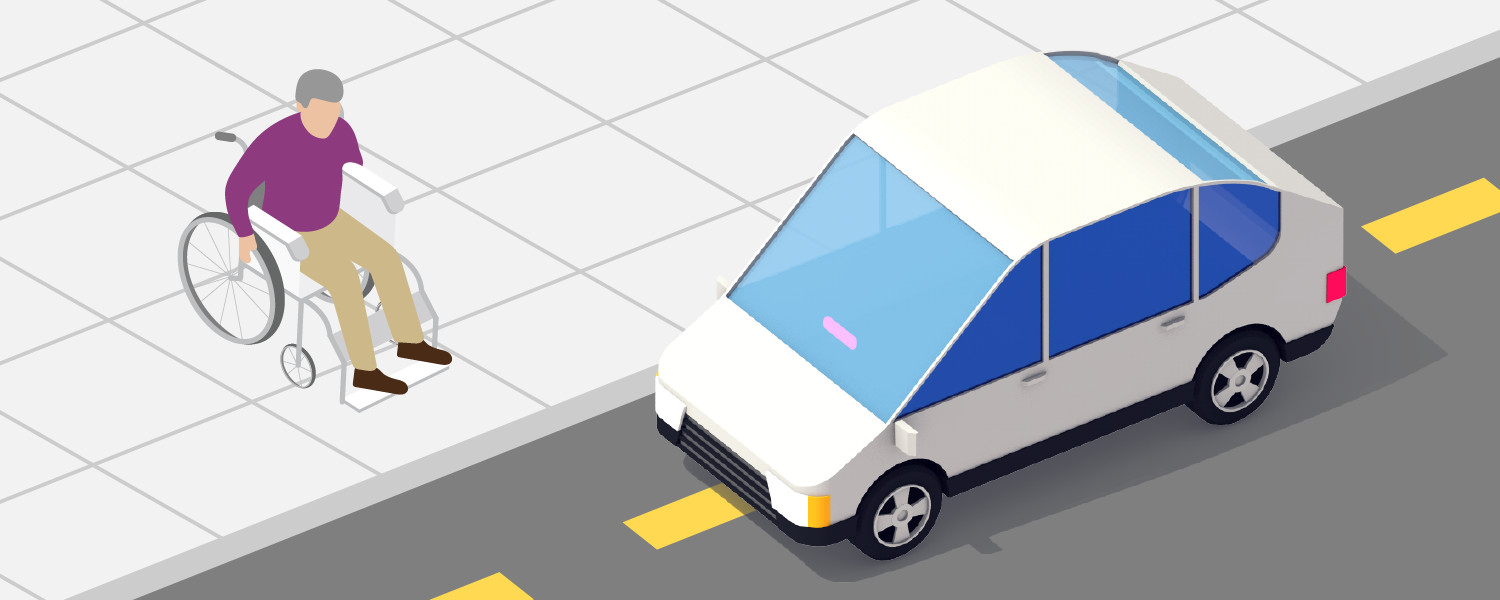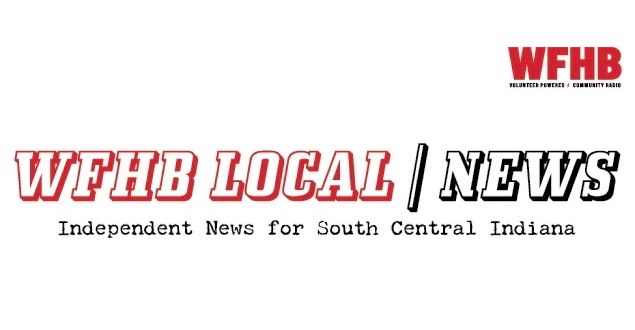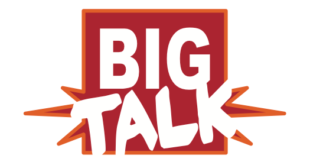Podcast: Play in new window | Download (Duration: 28:59 — 39.9MB)
Subscribe: RSS
This is the WFHB Local News for Wednesday, August 24th, 2022.
Later in the program, President Joe Biden announced on Wednesday that he would cancel 10,000 dollars of student debt for those earning less than 125,000 dollars per year. More in today’s feature report.
Also coming up in the next half hour, we have the Disabulletin – a brief segment on disability issues facing the nation. But first, your local headlines:
Monroe County Board of Commissioners

At the August 10th Monroe County Board of Commissioners meeting, board members read a public statement in opposition to the recently passed Senate Bill One.
Commissioner Julie Thomas condemned the near total ban on abortion saying she believes the legislation will have many negative repercussions for Indiana residents.
The board of commissioners discussed Ordinance 2022-23 to amend the Monroe County Code regarding the Criminal Justice Response Committee. County Attorney Jeff Cockerill explained the ordinance.
Commissioner Lee Jones said she agreed with the expansion of the committee.
County Commissioner Julie Thomas said she believes this is an important step in communicating with the community when it comes to the county’s criminal justice response.
During public comment, Jim Shelton of Court Appointed Special Advocates or CASA, said he hopes the commissioners approve the ordinance.
The board of commissioners approved the ordinance. The next commissioners meeting will be held on August 17th.
President Biden Cancels $10,000 of student debt for those earning under $125,000 per year

President Joe Biden announced on Wednesday that he would cancel 10,000 dollars of student debt for those earning less than 125,000 dollars per year. The measure also included an additional 10,000 dollars for people who received Pell grants in college.
WFHB News spoke with Phil Schuman, executive director of financial wellness and education at Indiana University back in May 2022. At that time, President Biden was weighing whether or not he would forgive any more student debt.
During the interview, Schuman walked through how the U.S. amassed 1.6 trillion dollars in student loan debt.
Biden’s latest loan forgiveness announcement only includes federal loans. However, this does not include private loans. Schuman said it’s up to private loan companies to determine what will happen with private loans.
A partisan divide exists concerning student loan forgiveness. Schuman weighed the pros and cons, politically speaking, for Joe Biden eliminating at least some student loan debt. He first mentioned how the elimination of student debt could be beneficial.
Schuman next weighed some of the negative ramifications he believed could be a result of canceling some student loan debt.
Tuition at public colleges and universities were often free or at least more affordable decades ago. Schuman explained why the cost of college has skyrocketed over the years in his view.
Experts debate how eliminating some student debt would impact the overall economy. Schuman walked through some of the economic implications of student loan forgiveness.
The Biden Administration announced it will extend the moratorium on student loan payments until December 31st.
Disabulletin: A Brief Segment on Disability Issues Facing the Nation

In a lawsuit filed July 29 between Westchester county based Westchester Disabled on the Move Inc (WDOMI), Lyft officials said the company is exempt from the Americans with Disabilities Act and doesn’t have to cater to people with non-folding wheelchairs.
- Lyft has been embroiled in the class action suit with WDOMI since 2017, sued the company for failing to accommodate people with wheelchairs that don’t fold.
- Currently, the ride-sharing company won’t make wheelchair-accessible vehicles (or WAVs) available to passengers with non-folding wheelchairs in areas outside of where Lyft is required by state laws to do so (or “non-access” regions, as disability rights groups call them).
- While Advocates aren’t seeking any financial compensation, they are lobbying for Lyft to help WAV drivers reach riders by both allowing drivers to categorize their vehicles as WAVs and turning off any app blockers that would prevent riders from selecting the company’s accessible option.
- Lyft is arguing that it is not subject to regulations in the Americans with Disabilities Act that would require it to ensure the availability of wheelchair-accessible vehicles because it is a technology company, not a transportation business.
- According to court documents filed by Lyft and its website, the company offers WAV services through an “Access” ride option on the app in the nine cities that require the company to do so. In regions where this “Access” mode isn’t available, riders are directed to other transportation options, according to court documents. Lyft said in the filing that it can’t simply “turn on” “Access” mode to connect riders with WAV drivers in other areas because there aren’t enough of those vehicles.
- A Lyft spokesperson cited a lack of driver availability as one of the issues hindering fulfilment of the WAV requests: “There is an extremely limited supply of these specially manufactured vehicles across the country, and even fewer among the population of rideshare drivers. Despite these obstacles, we’re constantly working to improve the reliability of the service and find solutions to address supply challenges.”
- The company currently works with third-party providers to supply WAV vehicles and works to recruit drivers who already have WAVs, but company officials hold that these solutions aren’t feasible nationwide.
- Additionally, the high cost of wheelchair-accessible vehicles (converting a van into a WAV could cost up to $30,000) and the “small” population of people in the U.S. who use non-folding wheelchairs also contributed to the lack of WAV service. “Where the supply and demand for service is very low, the platform does not perform well and there is very low, or in some cases no, use,” Lyft officials additionally said in court documents. The American Academy of Physical Medicine and Rehabilitation says roughly 5.5 million adults use a wheelchair for mobility — both foldable and non-folding.
- However, a lawyer for the disability rights advocates said the number of drivers with WAVs isn’t as big an issue as Lyft claims.
- Attorney Jeremiah Frei-Pearson said Lyft provides accessible rides in cities located in states with government regulations, including Boston, Chicago, Dallas, Los Angeles, New York, Philadelphia, Portland, Phoenix, San Francisco. But disability rights groups want Lyft to make this access available nationwide
- “Lyft needs to provide wheelchair accessible service to everyone. To do that, all Lyft has to do is turn off the blocker — or toggle — that prevents people from identifying their vehicles as WAVs and prevents riders from requesting WAVs,”
- This isn’t the first legal dispute Lyft has seen over accessibility. “Lyft, Uber and Via settled a suit against New York City in 2018 in which they opposed rules that would impose accessibility requirements on the ride-share companies. In the end, they agreed to provide wheelchair-accessible riders to passengers quicker. In 2020, Lyft settled a lawsuit brought by the Department of Justice that required the company to accommodate riders who use foldable wheelchairs and pay a fine to four people who accused the company of discrimination. Lyft did not admit any wrongdoing in the 2020 suit.
Source: NBC News
Consumer Watchdog Segment

Up next, Real Estate and Fake Money on Better Beware – your weekly consumer-watchdog segment on WFHB. We turn to host and producer Richard Fish for more.
Credits:
You’ve been listening to the WFHB Local News,
Today’s headlines were written by Kade Young and Noelle Herhusky-Schneider, in partnership with Cats – Community Access Television Services.
Disabulletin was produced by Abe Shapiro.
Better Beware is produced by Richard Fish.
Our theme music is provided by Mark Bingham and the Social Climbers.
Engineer and Executive producer is Kade Young.
 WFHB Bloomington Community Radio
WFHB Bloomington Community Radio


